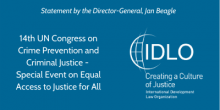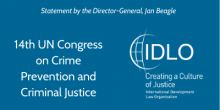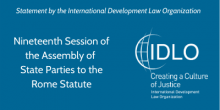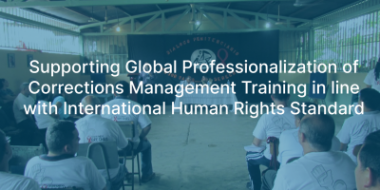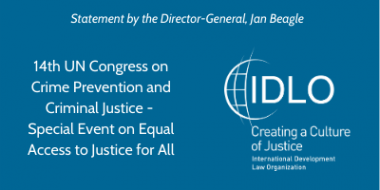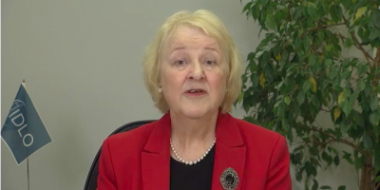New International Advisory Group Steers Global Corrections Curricula, with Support from IDLO and INL
At any given time in the world, 11.5 million people spend their days behind bars, often pending trial and in overcrowded cells. Prisons operating above their occupancy limits are difficult to manage. In many countries, this translates into corrections systems where international human rights standards and respect for the rule of law are rarely implemented.



